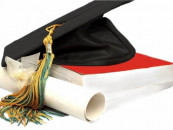Learning assessment: Educationists say govt policies need revision
‘Monthly feedback helps schools improve and creates awareness of which schools are performing better than others’.

‘Monthly feedback helps schools improve and creates awareness of which schools are performing better than others’.
Participants of a consultation on the Learning Metrics Task Force (LMTF) on Wednesday said several government interventions needed revision.
The consultation was held at the School Education Department (SED). It was jointly organised by the SED and the Idaara-i-Taleem-o-Aagahi (ITA).
The LMTF is a project of the UNESCO’s Institute for Statistics (UIS) and the Centre for Universal Education (CUE) at Brookings Institution. It aims to encourage global discourse on access to education and learning. It also offers recommendations on measuring and improving learning outcomes.
The event was part of the third phase of consultation dealing primarily with how to measure ‘learning outcomes’.
Sehar Saeed, a research associate at the ITA, said the project aimed at developing understanding of these issues in several countries. “Despite several global commitments on education, as many as 25 million children in Pakistan are out of schools,” she said, “We need to evaluate what children are learning and why they are receiving education.”

The first phase of these consultations in 2012 aimed at determining what areas of learning were most important. It identified seven areas: physical well being, social and emotional, culture and arts, literacy and communication, learning approach and cognition, numeracy and mathematics and science and technology. The consultations recommended that children should be taught these areas from early childhood to secondary level.
Learning assessments carried out in Pakistan revealed that children were trained in only two of the seven areas. These are numeracy and language. Punjab Education Assessment System (PEAS) Research Analyst Nasir Mahmood said the PEAS could only assess children in areas identified in the curriculum. The organisation assessed students of grades 4 and 8 in mathematics, social studies and Urdu. It had four proficiency levels for its assessments.
Dr Mahmood noted that the assessments of grade 4 students, as per the 2002 curriculum, showed better performance in social studies and mathematics. Students had poor proficiency in Urdu, especially in its grammar. He said the PEAS’s data showed that students in urban localities had better learning outcomes than those in rural areas. He observed that female students were more proficient in language than in numeracy.
The Directorate of Staff Development also assesses public school students enrolled in grades 3, 4 and 5. The DSD assessments, first held in November 2010, are oral and written. Course coordinator for Research and Distance Learning at the DSD, Azmat Siddiqi, said the department had assessed 2 million out of the 2.7 million children enrolled in the grades 3 to 5, each month.
Teachers were also assessed and provided training in one-day workshops on a quarterly basis. Schools’ assessments were carried out and rankings were displayed on the schools’ gates, he said. Monthly feedback helped schools improve and created awareness about which schools were performing better than others, he added. However, Siddiqi said the impression that failure to use local languages hindered teaching in schools was wrong. “Teachers use native and regional languages during teaching,” he said. He said that the government had introduced books for mathematics and science in English because of a lack of ‘writers’ in Urdu language.
Islam Siddiqi, director of public instruction at the Elementary Education Department, said that the assessments of grades 5 and 8, conducted annually by the Punjab Examination Commission (PEC), were the most reliable and accurate. He said universities assessed the learning outcomes of students, independently. “Assessments help children learn. They help teachers teach… It is the only way we can keep a check on the education system,” he said.
Consultant educationist Ismat Riaz was of the view that the examination system needed to be revised. “Our examination system has gone off-track,” she said. She stressed the need for the examination system to comply with international standards.
“Our teachers are highly confused,” said Kashf Foundation educationist Shabnum Fareed. She said the system lacked the ability for teachers to utilise the skills imparted to them. Fareed said that teachers should be facilitated rather burdened with additional non-teaching responsibilities.
Education Reform Additional Secretary Afshan Kiran Imtiaz said that while teachers needed to be proficient in their national language (Urdu) and regional languages, they also needed to emphasise the use of English. “Children have to move forward from basic education and enter the practical world where English language is a necessity,” she said.
Published in The Express Tribune, June 20th, 2013.



















COMMENTS
Comments are moderated and generally will be posted if they are on-topic and not abusive.
For more information, please see our Comments FAQ